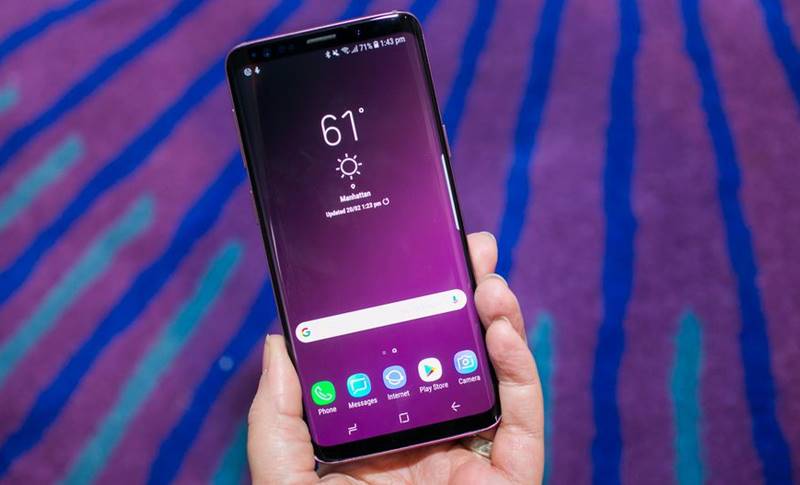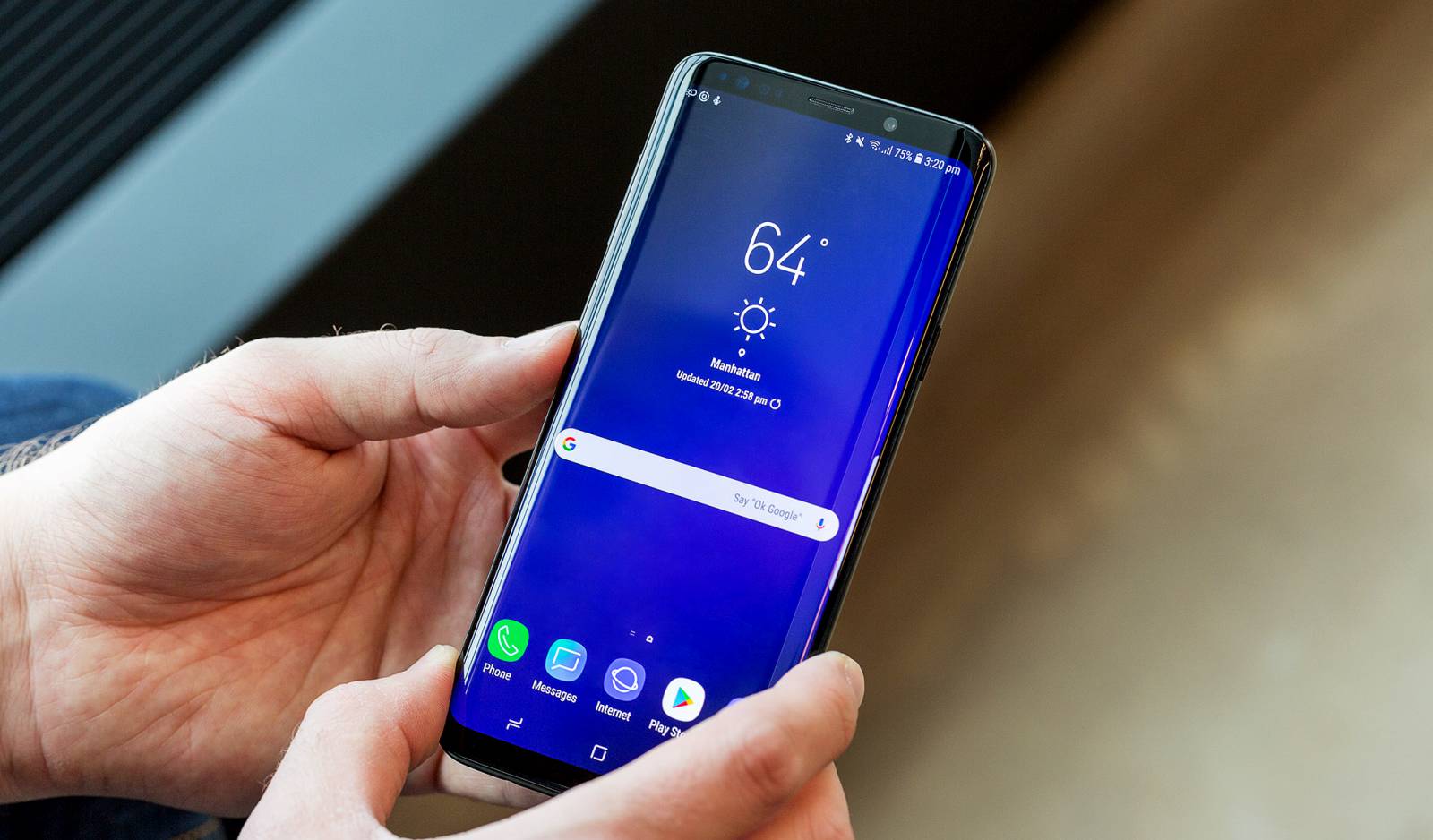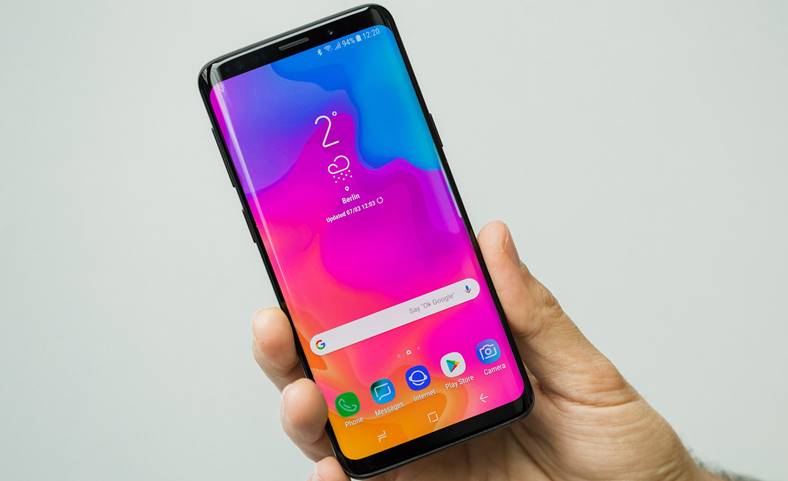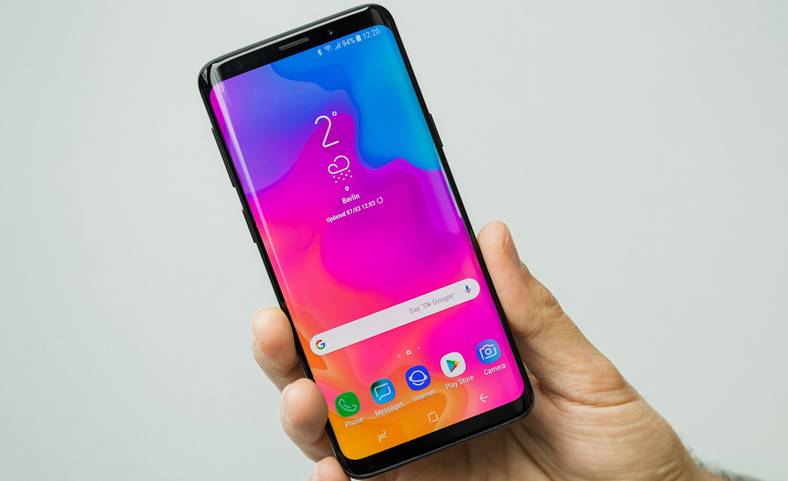Samsung GALAXY S9 este telefonul care va ramane in istoria Samsung drept modelul premium care a inregistrat vanzari mai proaste decat modele lansate cu mai bine de 5 ani in urma, iar asta pentru ca ii lipsesc inovatiile. Samsung a inteles ca a gresit mult cu Samsung GALAXY S9, asa ca astazi a facut un anunt extrem de important, si investitii de 160 de miliarde de dolari, da ati citit bine, pentru a dezvolta tehnologii de ultima generatie, si pentru viitor.
Samsung GALAXY S9 a obligat compania Samsung sa anunte investitii de peste 160 de miliarde de dolari pentru a se asigura ca in urmatorii ani va ramane in topul companiilor care aduc pe piata cele mai multe inovatii. Samsung va investi acesti bani in inteligenta artificiala, 5G, piese pentru masini, ecrane pentru telefoane, chip-uri, si alte tehnologii care ar fi facut Samsung GALAXY S9 un telefon grozav, dar care nu ajung nici in Samsung GALAXY Note 9.
Samsung GALAXY S9 OBLIGA Samsung sa faca o Schimbare URIASA
Samsung GALAXY S9 nu a ajutat Samsung cu mai nimic bun, doar a confirmat faptul ca a ramas in urma producatorilor chinezi, care se pregatesc sa o intreaga acolo unde conteaza cel mai mult, in vanzarile de telefoane. Investitiile celor de la Samsung vor crea si peste 40.000 de locuri de munca pentru a crea aceste inovatii, totul pentru a se asigura de faptul ca esecul inregistrat in cazul Samsung GALAXY S9 nu se va mai repeta si cu alte modele de telefoane.
Samsung GALAXY S9 ramane totusi in vanzare pentru compania coreeana pana la inceputul anului viitor, iar Samsung GALAXY Note 9 nu va rezolva in vreun fel problema cu vanzarile, pentru ca nu aduce noutati majore. Totusi, este important de retinut faptul ca Samsung GALAXY S9 a motivat compania Samsung sa faca investitii majore pentru a-si asigura viitorul, 160 de miliarde de dolari fiind cea mai mare investitie anuntata pana in prezent de vreo companie de talia ei.
- To invest KRW 25 trillion in AI, 5G, automotive electronics parts and biopharmaceuticals
- Additional investments in semiconductors, display to maintain global leadership
- Total investments to reach KRW 180 trillion, direct employment of 40,000 over next 3 years
- To leverage business expertise and proven programs to support tech ecosystem
Samsung also announced a set of initiatives to become a leading force in building and energizing the ecosystem of innovative businesses for the digital economy. By drawing on its well-established expertise in technology and start-up investments, Samsung will open up its venture incubation program to both external and internal start-up projects and provide software training.
Today’s announcement follows many months of deliberations and review by the management and board of directors of different Samsung companies that will make the investments, including Samsung Electronics.
Samsung expects innovations powered by AI technology will drive the industry’s transformation, while the next-generation 5G telecommunications technology will create new opportunities in autonomous driving, the Internet of Things (IoT) and robotics.
In AI, Samsung plans to significantly expand its research capability, increasing the number of advanced AI researchers to 1,000 across its global AI Centers. It will also invest aggressively to become a global player in the advanced markets for 5G chipsets and related devices and equipment.
Samsung aims to become a leader in electronics components for future cars such as system-on-chips for autonomous driving, utilizing its leadership in semiconductors, telecommunications and display technologies.
For biopharmaceuticals, Samsung has seen strong growth from both its contract manufacturing and biosimilar businesses. It will continue to invest heavily in the businesses, including developing and manufacturing biosimilars to combat chronic and difficult-to-cure diseases.
Separately, Samsung will increase its existing support of basic sciences to identify new growth opportunities, while widening the program to include areas of future technologies such as AI, 5G, IoT and biopharmaceuticals.
Investments for Technology Leadership
Overall, Samsung plans to invest a total of KRW 180 trillion over the next three years, including the spending on future growth businesses. The amount includes capital expenditures and R&D investments, and KRW130 trillion out of the total will be spent in Korea.
In semiconductors, Samsung will expand investments in manufacturing hubs, including in Pyeongtaek, to maintain global technology leadership and meet significant new demand from applications in AI, 5G, data centers and automotive electronics. In addition to investments for memory products, spending will include those for non-memory and new advanced manufacturing equipment.
For displays, investments will be increased to develop high-value, differentiated products amid rising competition in the industry.
Ongoing Commitment to Create Jobs
Together with the new investment, Samsung expects to create 40,000 new jobs over the next three years. This includes generating up to 20,000 additional new jobs on top of previous hiring plans, reflecting Samsung’s commitment to support youth employment.
Along with the direct employment, the investment in Korea is expected to help induce approximately 700,000 jobs in related industries and businesses.
Spurring Up Innovation Ecosystem in Digital Economy
Samsung aims to lead efforts to foster a vibrant ecosystem for innovations and growth, leveraging its technology and decades of experiences in creating successful businesses.
Samsung will expand its internal venture incubation program, C-Lab, which was introduced in 2012, to support external start-up projects. The platform will benefit 500 projects – 300 external candidates and 200 inside the company – in the next five years to encourage innovations and entrepreneurship.
In conjunction with the Korean government, Samsung will also set up and operate software education centers across the country, which will nurture much-needed software talent and help create new job opportunities. The centers will train 10,000 students and job candidates, and provide employment consulting services for the next five years.
Additionally, Samsung will strengthen joint research with leading higher education institutions in the area of semiconductor and other core technology.
Broadening Co-prosperity through Proven Programs
Samsung will boost its supplier support programs to a total of KRW 4 trillion, extending financing to more sub-contractors in the lower-level supply chain and increasing incentive payments. These programs will not only create stability within the supply chain, but also facilitate improvements within the partners.
Samsung will also increase the scale of its “Smart Factory” program, an initiative that provides automation solutions and intelligent upgrades for small and medium enterprises’ (SMEs) manufacturing facilities.
The program has already helped 1,086 manufacturers switch to smart factories and create 4,600 jobs between 2015 and 2017, by improving productivity and generating growth. Samsung and the Korean government will jointly set up a new KRW 110 billion fund to help 2,500 SMEs for the next five years.”

















